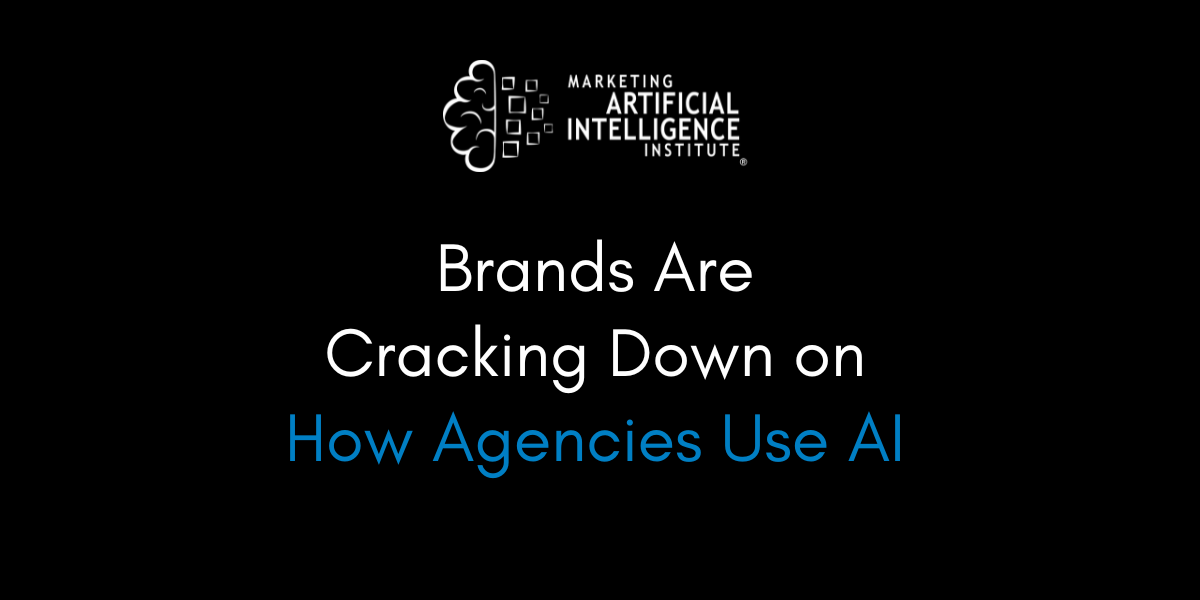Brands are cracking down on agency usage of AI.
According to AdAge, brands are demanding stronger AI safeguards in agency contracts. And, in some cases, they're restricting any AI usage without prior approval.
Said one ad agency CEO interviewed:
“Recently, we won three new pieces of business and in the [master service agreement] it says, ‘you’re not allowed to use AI of any kind, without prior authorization.”
Brands are, rightly so, worried about all the ways AI can go wrong when it's deployed by agency partners. That includes fears about how their data is used and how AI can be misused. Some also fear AI's impact on creative work and professionals.
(In one high-profile example, an ad from Under Armour drew criticism for using generative AI to create new visuals and voiceovers of boxer Anthony Joshua—without shooting new footage.)
How can agency leaders navigate this new normal?
I got the answers from Marketing AI Institute founder / CEO Paul Roetzer on Episode 92 of The Artificial Intelligence Show.
"You have to get the attorneys in the room"
“First and foremost, you have to get the attorneys in the room," he says.
AI has changed the game. Contracts between clients and agencies need to be reset. Master service agreements must define what you are and aren't allowed to use AI for. These standards must then trickle down to everyone else involved in these agreements. That includes other freelancers and all employees at brands and agencies.
How does generative AI usage affect ownership? (You can't enforce copyright on content generated by AI in the US right now, for instance.)
How does usage of AI tools honor data security, confidentiality, NDAs, etc.?
Who is liable if AI tools are used that (intentionally or accidentally) violate someone else's rights?
These are just a few critical legal concerns that need to be solved.
And, right now, there's not a lot of clarity, says Roetzer. And that creates problems.
"You can’t be scrambling to figure this out with each client and a client finally asks you about it and you don’t have an answer."
The answer probably isn't signing master service agreements that restrict AI completely. It's taking the time to figure out legal, responsible AI usage for yourself and your clients.
“It further shows just the uncertainty of the agency world right now," says Roetzer. "There are so many opportunities. But there’s just a lot of operations and legal that needs to be happening behind the scenes.”
Mike Kaput
Mike Kaput is the Chief Content Officer at SmarterX and a leading voice on the application of AI in business. He is the co-author of Marketing Artificial Intelligence and co-host of The Artificial Intelligence Show podcast.


